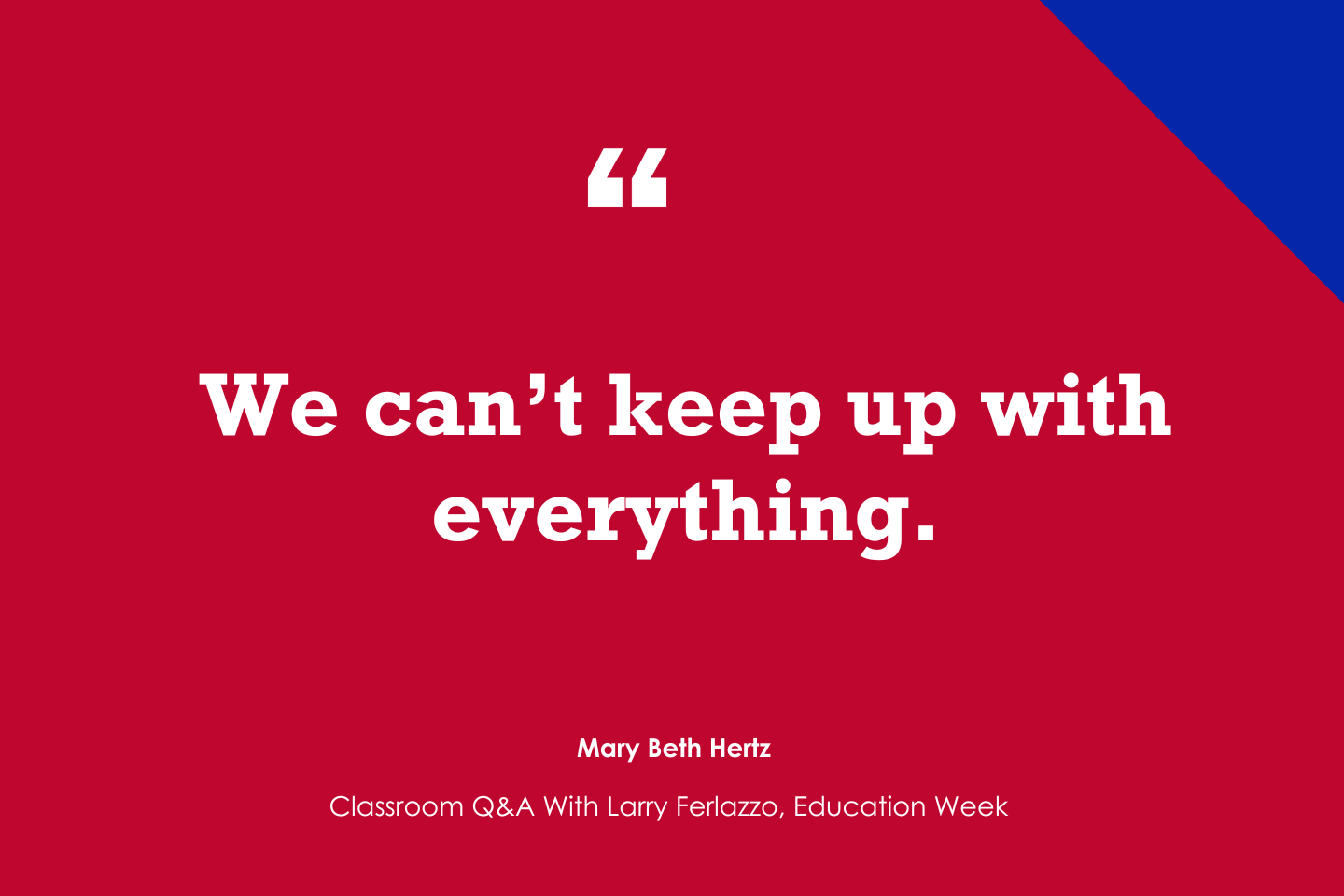Data has become the cornerstone of decision-making and institutional strategy in today’s higher education landscape. From tracking retention rates to measuring academic performance, data offers a clear, quantifiable view of how students and institutions are progressing. This reliance on numbers has driven many colleges to focus heavily on metrics in an effort to improve outcomes, streamline operations, and secure funding. However, while data provides valuable insights, it fails to capture the deeper, more personal factors influencing student success. The focus on numbers alone ignores relationships’ essential role in retention and persistence. Without considering the emotional and social aspects of a student’s educational journey, particularly the connections they build with faculty and peers, institutions risk overlooking the things that keep students engaged, motivated, and ultimately enrolled. Simply put, data is not enough. To truly support student success, we must move beyond the metrics and prioritize the human connections that make higher education meaningful.
Recent research underscores that while data is essential for tracking trends and setting benchmarks, relationships are the heartbeat of student success. As community colleges across the United States struggle with declining retention rates, it has become increasingly clear that institutional focus should not be limited to numbers alone. Instead, a holistic approach that prioritizes human connection is necessary to improve retention and academic persistence, particularly in community colleges, which serve a diverse population of non-traditional learners.
The Power of Human Connection in Education
While it is easy to get lost in numbers, community colleges must recognize that each data point represents an individual with unique needs, motivations, and challenges. Research has shown that students who feel connected to their college, especially through positive faculty-student relationships, are likelier to persist and succeed academically. Tinto’s Theory of Departure (1997) and Pascarella and Terenzini’s (2005) Influence Theory emphasize the importance of student-faculty interactions in fostering academic success. Students who experience strong, supportive relationships with faculty and staff are more likely to be retained, persist, and ultimately graduate.
Tinto (1997) and Pascarella and Terenzini’s (2005) theories support the idea that retention is not just about the data points we collect but also about the relational aspects that foster a sense of belonging. Students feel valued when the college community (not just faculty) takes the time to know their students, understand their struggles, and provide mentorship both in and outside the classroom. This emotional and psychological support can make all the difference in a student’s decision to stay in college, particularly for those in community colleges who may already juggle work, family obligations, and financial challenges.
Data Tells Only Part of the Story
Data provides a snapshot of institutional performance, but it often fails to capture the complexity of the student experience. While retention rates may point to the success or failure of a program or intervention, they do not provide the rich, qualitative insights needed to understand why students leave or stay. For instance, a student’s decision to withdraw from school is rarely based on a single factor that can be quantified, such as failing a class or missing a certain number of credits. There are often deeper issues at play, such as lack of engagement and support, personal struggles, or isolation.
In fact, studies have shown that the absence of relationships is a significant contributing factor to student departure. Students who don’t feel connected to their professors or college community are more likely to disengage and eventually drop out. On the other hand, when colleges invest in building personal connections with their students, whether through mentoring, frequent communication, or simple expressions of care, students are more likely to persist through difficult times.
Creating a Culture of Belonging
To truly foster student success, community colleges need to prioritize building a culture of belonging that extends beyond academic achievement. Faculty and staff should be encouraged to engage with students in meaningful ways that extend past classroom interactions. This could mean learning about a student’s goals and challenges, offering office hours for one-on-one consultations, or simply providing feedback on how a student is progressing—academically and personally.
Building student relationships requires intentionality and support from institutional leaders. Administrators must recognize that professional development programs should not solely focus on pedagogical techniques but also on the importance of relational skills. Equipping faculty and staff with the tools to build rapport with students, understand their diverse needs, and provide emotional support is as crucial as ensuring they effectively deliver instructional content.
Recommendations for Practice
While data is still essential, community colleges should balance it with creating solid student relationships. Providing opportunities for professional development in relational practices can improve student engagement and retention.
- Foster Emotional Intelligence: Colleges should invest in developing emotional intelligence among faculty and staff. This includes empathy, active listening, and the ability to offer support during times of stress. These skills are vital for creating environments where students feel understood and valued.
- Implement Holistic Student Support Services: Students need more than just academic support. Community colleges should expand their support services to include counseling, mentorship programs, and peer support networks. This can help students build relationships with faculty and peers, which can be a powerful motivator for retention.
- Encourage Faculty-Student Engagement Outside the Classroom: Encouraging faculty to engage with students outside the classroom through office hours, mentoring programs, and informal interactions can significantly enhance student-faculty relationships and foster a sense of belonging.
- Implement a Customer Service Model: This can significantly enhance student retention by prioritizing personalized, responsive support throughout their academic journey. By offering clear communication, accessible resources, and proactive outreach, institutions create an environment where students feel valued and supported.
Data alone will never provide the full picture of student success. While it can help track progress and identify trends, the key to improving retention rates and fostering student success lies in the relationships cultivated between students, faculty, and staff. By building a supportive, inclusive environment that prioritizes human connection, community colleges can improve retention rates and ensure their students are set up for long-term academic and personal success.
Ultimately, while the importance of data cannot be overlooked, the need for strong, positive relationships should be placed at the forefront of retention strategies. It is the relationships built within the classroom and beyond that truly make a lasting impact on students’ educational journeys.
Dr. Rebecca L. Conley is an accomplished educator and higher education leader, currently serving as the Dean of Teaching and Learning at Ivy Tech Community College. With over a decade of experience in academia, Dr. Conley specializes in fostering innovative teaching environments, promoting faculty development, and driving student success initiatives. She earned her Doctor of Education in Higher Education Leadership from the American College of Education and is recognized for her expertise in curriculum development, accreditation, and strategic planning. A passionate advocate for education, Dr. Conley combines her professional achievements with a commitment to community service and lifelong learning.
References
Pascarella, Ernest T., and Patrick T. Terenzini. 2005. “How College Affects Students: A Third Decade of Research.” San Francisco: Jossey-Bass.
Tinto, Vincent. 1997. “Leaving College: Rethinking the Causes and Cures of Student Attrition.” Chicago: University of Chicago Press.
The post Why Data Alone Won’t Improve Retention appeared first on Faculty Focus | Higher Ed Teaching & Learning.
Data has become the cornerstone of decision-making and institutional strategy in today’s higher education landscape. From tracking retention rates to measuring academic performance, data offers a clear, quantifiable view of how students and institutions are progressing. This reliance on numbers has driven many colleges to focus heavily on metrics in an effort to improve outcomes,
The post Why Data Alone Won’t Improve Retention appeared first on Faculty Focus | Higher Ed Teaching & Learning. Teaching and Learning, building relationships, building student engagement, College Student Retention, meaningful learning experiences, retention Faculty Focus | Higher Ed Teaching & Learning







